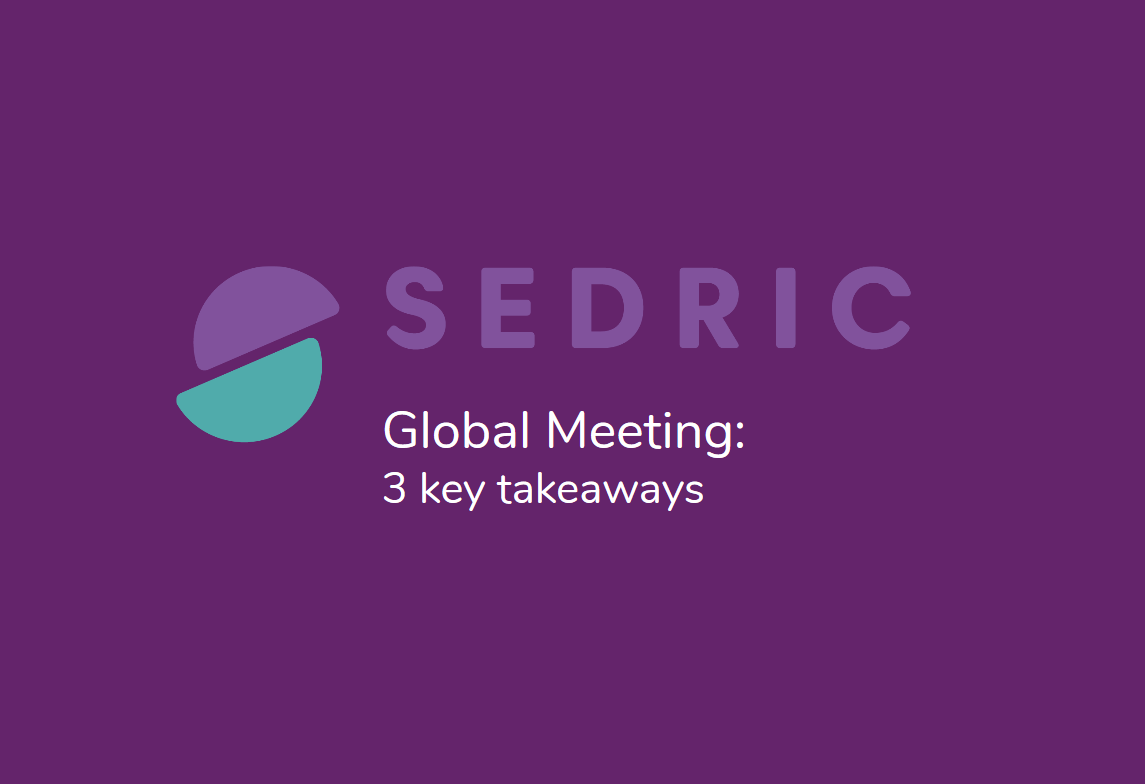
The SEDRIC global meeting was attended by over 100 experts in AMR surveillance and Epidemiology who had the chance to share their views, listen to different perspectives on AMR surveillance from our speakers and network with colleagues from around the world.
The day began with a welcome from the SEDRIC Chair professor Sharon Peacock who outlined SEDRIC’s work and achievements to date. Our keynote speakers were Professors Lance Price (Milken Institute School of Public Health) and Gordon Dougan (Wellcome Sanger Institute). Professor Lance Price outlined the issues around using antimicrobials in livestock while Professor Dougan highlighted the importance of vaccines to lower the rate of infection. We also heard about the important work that our bursary winners (https://sedric.org.uk/meet-the-sedric-travel-bursary-winners/) are carrying out in low middle-income countries. In the afternoon, Dr Francesc Coll (London School of Hygiene and Tropical Medicine) presented his work on the feasibility of informing syndrome-level empiric antibiotic recommendations using open source datasets. To conclude Dr Elizabeth Ashley (Lao-Oxford-Mahosot Hospital Wellcome Trust Research Unit) and Dr Paul Turner (Cambodia Oxford Medical Research Unit) gave an update on SEDRIC’s patient data working group and the Clinically Oriented Antimicrobial Resistance Network (ACORN) project. Dr Direk Limmathurotsakul gave an update on how to improve the estimation of the global burden of AMR infections trough performing blood culture analysis as standard practice.
All attendees had the chance to input in the work that SEDRIC is doing on patient data (https://sedric.org.uk/working-groups/) by providing their feedback on the following areas AMR surveillance data; diagnostics; integrating clinical and lab data; healthcare associated infections.
The panel discussion, with representatives from WHO, US CDC, CDC Africa, Fleming Fund and JPIAMR, highlighted the need for a global response and current barriers to its implementation. There is a need to secure more funding to support surveillance activities and engage with governments on AMR surveillance to ensure surveillance data can inform action at the national and local level.
Our three key takeaways from the day are:
- We need a truly global surveillance system. Countries need to monitor drug-resistant infections in order to make effective decisions to limit their spread. An ideal global surveillance system should be built on the comprehensive collection of individual country surveillance data. With only 40 countries around the world submitting data into WHO Global Antimicrobial Resistance Surveillance System (GLASS) and untapped data sources within academia and private sectors there are still considerable barriers that we need to overcome to boost data collection and access.
- We need to facilitate data sharing. Tracking resistant infections across countries is key in building our understanding of the burden of AMR but comparing and sharing data collected in different ways is challenging. While surveillance networks have been instrumental in harmonising data from various sources, we need to build on existing efforts and develop standards for data collection and analysis to facilitate data sharing practices in the long term.
- We need to maximise utility. With the limited data we have on AMR surveillance we need to ensure we are using it effectively. All the data we collect, and share can be used to inform policy actions. However, data needs to be translated and interpreted so policy makers can inform through evidence.
Follow the links below to access the recordings of the day: